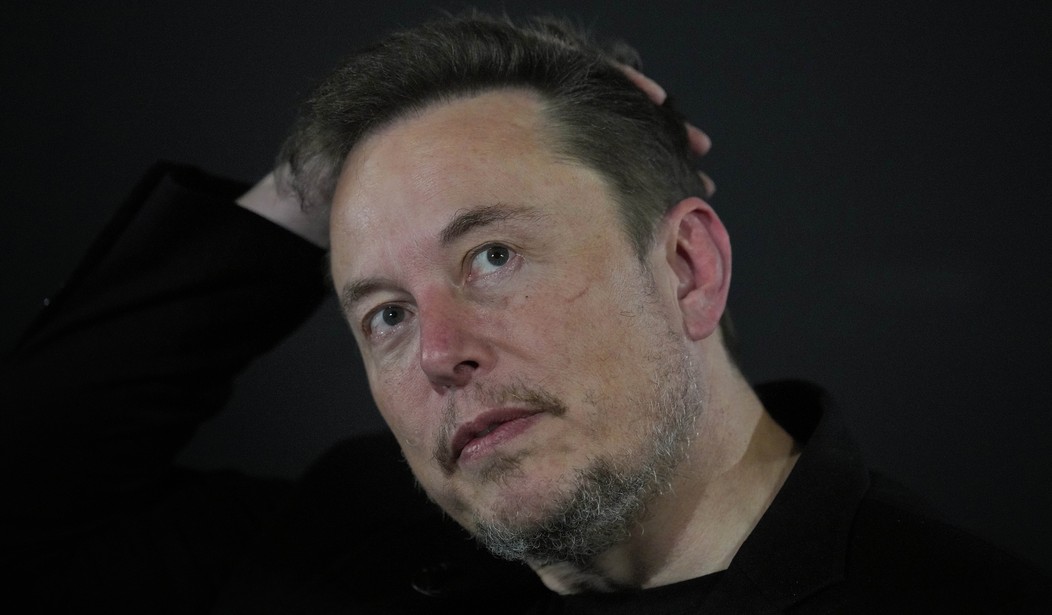One thing I like to do is look into the future of technological development and see where humanity will wind up in its relationship with technology. Too often, many of these things sound horrifying, and when pulled back to a wider view, they probably are. But oftentimes, what we consider disturbing sci-fi becomes a normal reality the next day...figuratively speaking.
(READ: My Weird Thoughts on How Humanity and Technology Will Grow Together)
It's my honest opinion, however, that the next evolutionary leap for humanity will have to occur with some sort of merging of machine and man. While I'm not saying that we all need to become RoboCop (although I do believe that might also be an inevitable part of our future), I do believe that the advancement of technology will result in humanity overlapping with it.
SpaceX and X CEO Elon Musk seems to believe the same thing will happen and is paving the way for it to become a reality through Neuralink, a project he's been working on for some time that allows this very thing to happen.
And because of Musk, that future isn't something far off in the future — it's right around the corner.
As the New York Post reported, Neuralink just completed its first human implantation, and tests will begin soon. As Musk noted, the immediate purpose of Neuralink is to give the crippled and disabled a way to control technology by just using their minds, but ultimately, it will be for unlocking more out of humanity:
“The short-term goal of the company is to build a generalized brain interface and restore autonomy to those with debilitating neurological conditions and unmet medical needs,” Seo, who also holds the title of vice president for engineering, told Bloomberg.
“Then, really, the long-term goal is to have this available for billions of people and unlock human potential and go beyond our biological capabilities.”
The trials will apparently take six years to complete, and it's currently unknown how many test subjects will be used. According to Musk, the first product from Neuralink will be called "Telepathy," which, according to Musk, will allow people with the chip to have the power of technopathy, or the ability to control technology just by thinking about it.
Enables control of your phone or computer, and through them almost any device, just by thinking.
— Elon Musk (@elonmusk) January 30, 2024
Initial users will be those who have lost the use of their limbs.
Imagine if Stephen Hawking could communicate faster than a speed typist or auctioneer. That is the goal.
To be clear, there are a lot of positives and a ton of negatives to this kind of thing. Having the ability of technopathy would indeed create an entire branching path of human evolution. The ability to control technology with mere thought could give them the ability to practically merge minds with any device capable of the link. Drones, cars, household appliances, computers, and even your living room lamps and televisions could suddenly become extensions of yourself. Your entire home becomes you.
Want to turn on your lights? Switch to your favorite streaming service? Want to adjust the temperature in your home to your preferred level? Just think about it, and it's done. In the future, I see self-driving cars not even needing to be programmed for a destination. Just think about it, and it takes you there.
While this all sounds incredible and exciting, the drawbacks can be profound. What happens if the device breaks? What are the ramifications of it malfunctioning in your brain? How will updates to the device occur? Will anyone else have backdoor access to your device? How much information is the device sending back to the company that created it? Is it recording your brain activity? How much of it? Can it be used against you in some way? Can the government get access to your brain patterns or the device itself?
These are just a few of the questions that need to be asked as this technology starts to develop, but despite these misgivings, this technology is coming. Like the rise of AI, it's unlikely that any of this will be stopped, and as the technology is perfected and becomes integrated into everyday life, people will sign up to include themselves in it.
My haunting prediction is that techs like Neuralink and AI, self-driving cars, personal drones, virtual reality, and autonomous robots will rise together. It's unclear which one will become more dominant (my money is on AI and likely merging with autonomous robots), but each of these things will become a normal part of everyday life for future generations.
It's also my belief that, in order for humanity to become a space-faring species capable of safe traversal through the expanse, this kind of merging will be necessary. Alterations to the human body, including making it part-computer/machine, may be necessary to survive long-term outside our planet.
Again, this sounds like horror to us, but three generations from now, this may just be the most normal thing in the world.














Join the conversation as a VIP Member